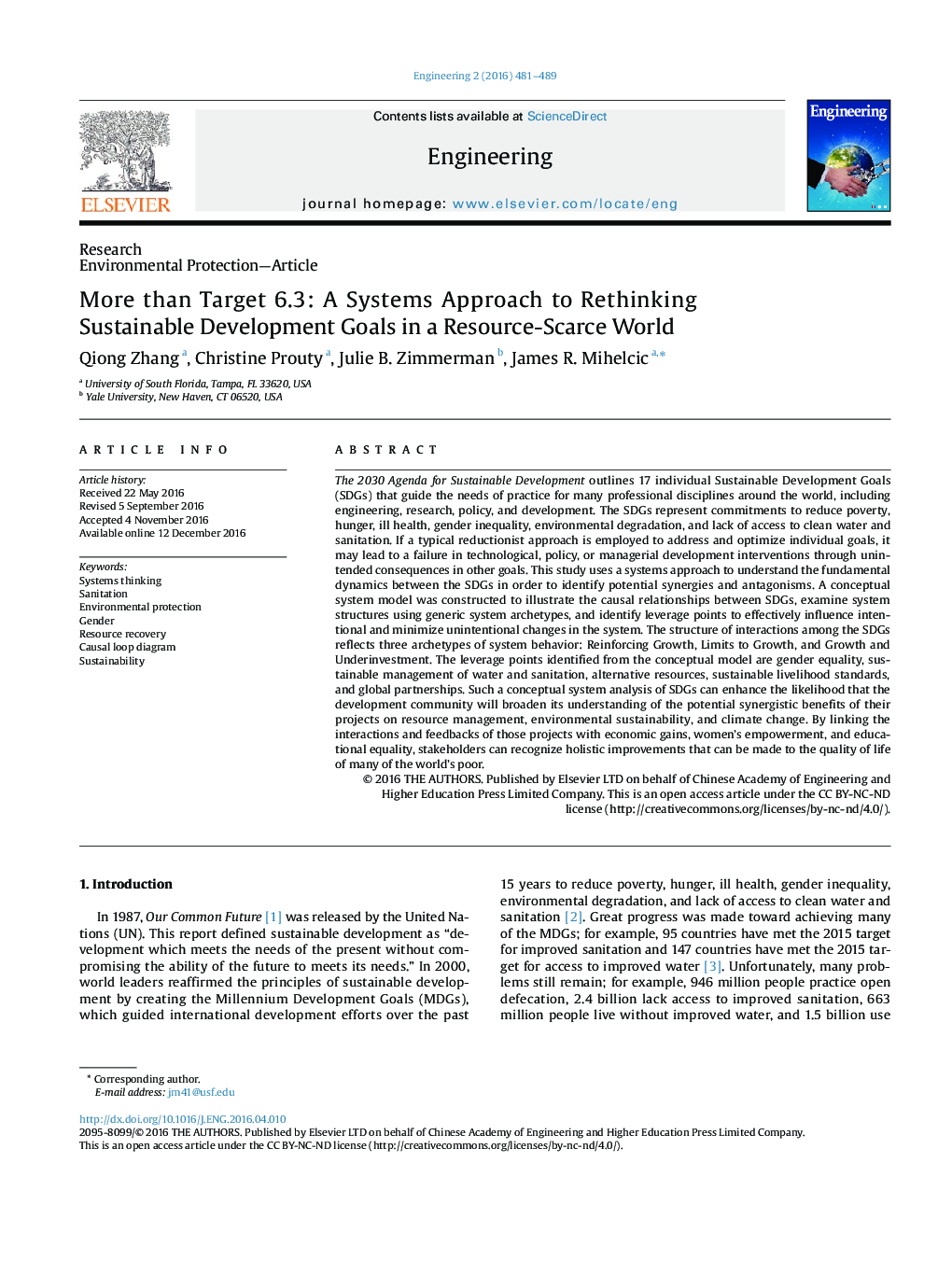| کد مقاله | کد نشریه | سال انتشار | مقاله انگلیسی | نسخه تمام متن |
|---|---|---|---|---|
| 4959266 | 700356 | 2016 | 9 صفحه PDF | دانلود رایگان |

The 2030 Agenda for Sustainable Development outlines 17 individual Sustainable Development Goals (SDGs) that guide the needs of practice for many professional disciplines around the world, including engineering, research, policy, and development. The SDGs represent commitments to reduce poverty, hunger, ill health, gender inequality, environmental degradation, and lack of access to clean water and sanitation. If a typical reductionist approach is employed to address and optimize individual goals, it may lead to a failure in technological, policy, or managerial development interventions through unintended consequences in other goals. This study uses a systems approach to understand the fundamental dynamics between the SDGs in order to identify potential synergies and antagonisms. A conceptual system model was constructed to illustrate the causal relationships between SDGs, examine system structures using generic system archetypes, and identify leverage points to effectively influence intentional and minimize unintentional changes in the system. The structure of interactions among the SDGs reflects three archetypes of system behavior: Reinforcing Growth, Limits to Growth, and Growth and Underinvestment. The leverage points identified from the conceptual model are gender equality, sustainable management of water and sanitation, alternative resources, sustainable livelihood standards, and global partnerships. Such a conceptual system analysis of SDGs can enhance the likelihood that the development community will broaden its understanding of the potential synergistic benefits of their projects on resource management, environmental sustainability, and climate change. By linking the interactions and feedbacks of those projects with economic gains, women's empowerment, and educational equality, stakeholders can recognize holistic improvements that can be made to the quality of life of many of the world's poor.
Journal: Engineering - Volume 2, Issue 4, December 2016, Pages 481-489